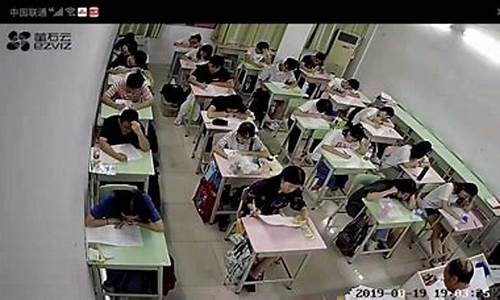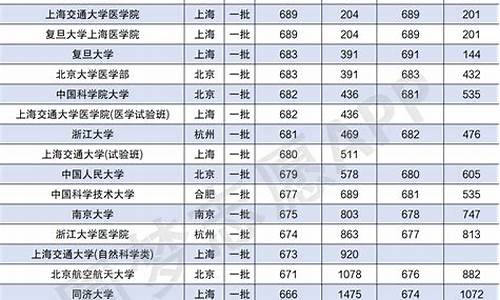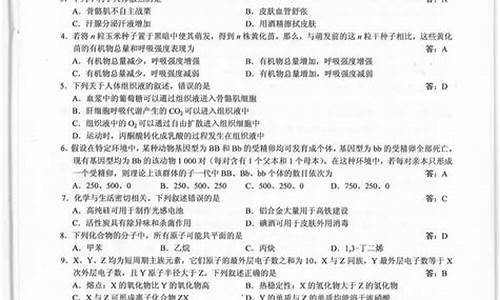高考英语背单词该背啥_高考备考单词

#英语资源# 导语在英语的学习过程中,无论是阅读完形还是在写作,词汇的缺乏始终是很多同学*大的障碍。 考 网精选了一些高考常单词和短语,并放在句子中供大家学习。
1. 他绊了一下,摔倒了。
He trippedand fell.
2. 她提出了一个重要问题,就是由谁负责。
Sheraisedthe important question of who will be in charge.
3. 我必须工作来养家。
I have to work tosupport my family.
4. 这座桥经得住重型卡车吗?
Is this bridge strong enough to supportheavy lorries?
5. 告示牌上写着“禁止抽烟”。
The signsays “No smoking”.
6. 雨还在下,没有转晴的迹象。
The rainy weather showed no signof improving.
7. 我准备报名参加七月中旬的那个团。
I am ready tosign upfor the mid July group.
8. 这帽子和你的外套很相称。
The hat is a good matchfor your coat.
9. 在白墙的衬托下这幅画很好看。
The picture looks good againstthe white wall.
10. 一名记者被派去报道这次会议。
A journalist was sent to cover the conference.
11. 这些费用包括参观该景点的门票吗?
Does the fee coverthe charge for visiting the place?
12. 他们让受伤的司机在急救人员到来前不要动。
They told the injured driver to stay still until the emergency personnel arrived.
13. 我给你拍照时请不要动。
Please keep still while I take your photograph.
14. 这周围的美景令我感到惊叹。
The beautiful scenery around here gave me a sense of wonder.
15. 你在黑暗中居然没有迷路,这真是个奇迹。
It’s a wonderthat you didn’t lose your way in the dark.
16. 士兵应该服从命令。
A soldier should obeycommands.
17. 我英语学得很好,因此被选为英语老师的助手。
I have such a good command ofEnglish that I am elected as assistant to my English teacher.
18. 这个型号质量好,但太贵。
This model is of good quality, but it’s too expensive.
19. 伟人具有什么样的品质?
What qualitiesdoes a great person have?
20. 船沉入了河底。
The ship sank to the bottom of the river.
21. 名单读完却没有听到自己的名字,她心里一沉。
Her heart sank as the list ended without her name.
22. 当时,我们没有完全明白所发生之事的重要性。
At that time, we did not fullygraspthe significance of what had happened.
23. 人们普遍认为成功催人奋进。
It’s generally accepted that people are motivated by success.
24. 校办传来消息,王林被北京大学录取了。
News came from the school office that Wang Lin had been admittedto Beijing University.
25. 他示意我们该走了。
He gesturedto us that it was time to go.
26. 那条狗舒服地坐在草地上享受骨头的美味。
The dogsettledon the grass to enjoy its bone.
27. 她舒舒服服地坐在椅子上开始看书。
She settled herself into the chair and started to read.
28. 我在申请表上贴了一张照片。
I attacheda photo to my application form.
29. 坦白地说,很多人把名声和财富看得很重。
To be honest, a lot of peopleattach great importance to becoming rich and famous.
30. 每个房间都有浴室,都能上网。
Every room comes with its own bathroom and Internet access.
31. 我不确定他是否能与我的朋友们合得来。
I wasn’t sure if she wouldfit in withmy friends.
32. 父母应积极催促孩子利用这一机会参加运动会。
Parents should actively urge their children totake advantage ofthe opportunity to join sports teams.
33. 为了纪念那些勇敢的消防战士,一部**即将开拍。
A film will be made in memory ofthose brave fire fighters.
34. 她的脸上露出欣喜的神色。
Her facelit upwith pleasure.
35. 新年焰火照亮了整个城市的天空。
New Year’s fireworks lit upthe sky over the city.
36. 看到亲手种下的这一排排的树,我们大家都有一种成就感。
Seeing the lines of trees we had planted, we all hada sense of achievement.
37. 别再生气了,要设身处地地为他们想一想。
Don’t be angry any more. Try to put yourself in their shoes.
高考的单词量是3000个,繁多且难以记忆。把重点的单词 总结 归纳起来,是不是容易多了?下面由我给你带来关于高考英语重点单词用法总结,希望对你有帮助!
高考英语重点单词用法总结1
1.able 用法:be able to do
Note: 反义词 unable表示不能,而disabled表示残疾的。
be able to do可以表示经过艰难困苦才能做到的事。
2.abroad 用法:表示到(在)国外,是一个副词,前面不加介词。
Note: 可以说from abroad, 表示从国外回来。
3.admit 用法:表示承认的时候后面要加上动名词形式。
Note: 表示允许进入的时候与介词to搭配。
4.advise 用法:advise sb. to do; advise doing
Note: 后面的宾语从句要用虚拟语气。即:advise that sb. (should) do的形式。
5.afford 用法:通常与动词不定式搭配使用。
Note: 前面需要有be able to或can等词。
6.after 用法:表示在时间、空间之后;be after表示追寻。
Note: 用在将来时的时候后面接一时间点,而in接一个时间段,如:after 3 o?clock; in 3 days.
7.agree 用法:与介词on, to, with及动词不定式搭配。
Note: agree on表示达成一致;agree to表示批准;agree with表示同意某人说的话。
8.alive 用法:表语性形容词,在句中只能作表语,不能作定语。
Note: 可以作状语使用,表示活活地,如:bury sb. alive.
9.allow 用法:allow doing; allow sb. to do
Note: 可以表示允许进入,如:Please allow me in.
10.among 用法:用在三者或三者以上的群体中。
Note: 还可以表示其中之一,如:He is among the best.
11.and 用法:用于连接两个词、 短语 、 句子 或其他相同结构。
Note: 与祈使句搭配时往往可以表示条件。如:Work hard, and you?ll succeed sooner or later.
12.another 用法:表示又一个,泛指,相当于one more的含义。
Note: 不能直接加复数名词,需要与一个数词搭配,如:another 2 weeks.
13.answer 用法:及物动词,但在作名词时要与介词to搭配。
Note: 可以表示接电话、应门等。如:answer the phone/door.
14.anxious 用法:be anxious for/about/to do
Note: be anxious about表示担心;be anxious for表示盼望得到。
15.appear 用法:不及物动词,没有宾语,没有被动语态。
Note: 还可以作为系动词,与seem同义,表示看起来?。
16.arrive 用法:arrive at表示到一个小地方;arrive in表示到一个大地方。
Note: 引申含义表示得出,如:arrive at a decision/conclusion.
17.ask 用法:ask to do; ask sb. to do; ask for
Note: 后面的宾语从句要用虚拟语气。即:ask that sb. (should) do的形式。
18.asleep 用法:表语性形容词,在句中只能作表语,不能作定语。
Note: 通常与动词be及fall搭配;sound asleep表示熟睡。
19.attend 用法:表示参加,后面经常加上meeting, lecture, conference, class, school, wedding, funeral等词;也可以表示照顾,照料。
Note: attend to可以表示处理、照料等。
20.attention 用法:pay attention to; draw/catch sb?s attention
Note: 写通知时的常用语:May I have your attention, please?
21.beat 用法:表示打败某人,或连续不断地击打某物。
Note: heartbeat表示心跳。
22.because 用法:后面接原因状语从句,because of后面接名词。
Note: because表示直接原因,因此只有用它才可以回答why的特殊疑问句及用在强调句中。
23.become 用法:系动词,表示变得?。可以由好变坏或由坏变好。
Note: become of sb.表示某人发生了什么事情。
24.before 用法:before long, long before, the day before yesterday, the week / year before last 上上周/前年
Note: It be + 段时间 before?在该句型中,主句时态只有将来时态和一般过去时态。
25.begin 用法:begin to do; begin doing
Note: 当begin本身是进行时的时候,只能用begin to do的形式。如:It was beginning to rain.
高考英语重点单词用法总结2
26.believe 用法:believe sb.表示相信某人说的话;believe in sb.表示信任;6123结构。
Note: 回答问句时通常用I believe so/not的形式。
27.besides 用法:表示除?之外还有,包含在一个整体之中。
Note: 还可以用作副词,表示此外,要用逗号隔开。
28.beyond 用法:表示越过、在另一边,如:beyond the wood/bridge.
Note: 可以用于引申含义,表示超出?,如:beyond control/power/description.
29.bit 用法:与a little一样可以修饰不可数名词,形容词或副词。
Note: 修饰名词时要用a bit of;not a bit表示一点也不。
30.blame 用法:take/bear the blame; blame sth. on. sb.
Note: 表示应受到责怪时不用被动语态,如:He is to blame.
31.blow 用法:blow down/away
Note: 表示风刮得很大时要用blow hard.
32.boil 用法:boiling表示沸腾的;boiled表示煮过的。
Note: boiling point可以表示沸点。
33.borrow 用法:borrow表示借入:lend表示借出。
Note: 点动词,不能表示借的时间长短。
34.breath 用法:hold one?s breath;out of breath; save one?s breath
Note: take a breath表示深吸一口气;take breath表示喘口气。
35.burn 用法:burn down/up/one?s hand
Note: burning表示点着的;burnt表示烧坏的。
36.business 用法:on business表示出差;in/out of business表示开/关张。
Note: 表示商业时不可数,表示具体的行业时可数。
37.busy 用法:be busy with/doing.
Note: 不能说My work is busy. 应说I am busy with my work.
38.buy 用法:buy sth. for 5 dollars; buy sth. for sb.
Note: 点动词,不能表示买的时间长短。
39.but 用法:not?but.. but for next but one , have no choice bu to do sth., all but 几乎,差一点
Note: do nothing but do sth. nothing前有do,后面的to要省略。Not only? but also?引导的并列句,前倒后不倒。cannot help/ choose but do sth. 不能不,只能
40.by 用法:by accident, by air/ sea/ train, by and by, by far, by force, by mistake, by chance, by the way
Note: by way of 取道,经由。by reason of 由于。by 引导的时间状语一般句子用完成时态。
41.care 用法:take care of; with care; care for/about
Note: care about表示在乎,常用于否定句;care for表示关心,喜爱,常用于肯定句。
42.carry 用法:carry表示搬运;carry on表示进行;坚持下去;carry out表示执行。
Note: carry没有方向性,可以表示随身携带。
43.case 用法:in case; in case of; in any case; in this/that case
Note: in case后面的状语从句可以用虚拟语气,即in case sb. should do的形式。
44.catch 用法:catch the thief; catch fire; catch a cold; catch up with
Note: be caught表示陷入困境,如:He was caught in the rain.
45.cattle 用法:集合名词,动词要用复数形式。如:Cattle are raised here.
Note: 一头牛可以用a head of cattle. 注意十头牛用ten head of cattle。
46.chance 用法:by chance; take a chance; there is a chance that?
Note: 在chance后面可以用动词不定式或者of的结构作定语。
47.change 用法:change A for B表示用A换成B;change A into B 表示把A变成B。
Note: 表示变化时是可数名词,表示零钱时不可数。
48.class 用法:集合名词,谓语动词单复数由其表示的意思决定。
Note: in class表示在上课,in the class表示在班上。
49.close 用法:动词表示关闭;形容词表示亲密的;副词表示靠近。
Note: close作副词时表示距离上的靠近,而另一个副词形式closely表示密切地。
50.clothes 用法:复数名词,谓语动词用复数,不能加不定冠词。
Note: 要用few或many来修饰。
高考英语重点单词用法总结3
51. buy 用法:buy sth. for 5 dollars; buy sth. for sb.
Note: 点动词,不能表示买的时间长短。
52. but 用法:not?but.. but for next but one , have no choice bu to do sth., all but 几乎,差一点
Note: do nothing but do sth. nothing前有do,后面的to要省略。Not only? but also?引导的并列句,前倒后不倒。cannot help/ choose but do sth. 不能不,只能
53. by 用法:by accident, by air/ sea/ train, by and by, by far, by force, by mistake, by chance, by the way
Note: by way of 取道,经由。by reason of 由于。by 引导的时间状语一般句子用完成时态。
54. call 用法: call for / up / back / in / , call on sb. to do sth., pay / make a call on sb. give sb. a call ,on call
Note: call at后面跟地点;call on 后面跟人。
55. care 用法:take care of; with care; care for/about
Note: care about表示在乎,常用于否定句;care for表示关心,喜爱,常用于肯定句。
56. carry 用法:carry表示搬运;carry on表示进行;坚持下去;carry out表示执行。
Note: carry没有方向性,可以表示随身携带。
57. case 用法:in case; in case of; in any case; in this/that case
Note: in case后面的状语从句可以用虚拟语气,即in case sb. should do的形式。
58. catch 用法:catch the thief; catch fire; catch a cold; catch up with, catch sb. doing sth.
Note: be caught表示陷入困境,如:He was caught in the rain.
59. cattle 用法:集合名词,动词要用复数形式。如:Cattle are raised here.
Note: 一头牛可以用a head of cattle. 注意十头牛用ten head of cattle。
60. chance 用法:by chance; take a chance; there is a chance that?
Note: 在chance后面可以用动词不定式或者of的结构作定语。
61. change 用法:change A for B表示用A换成B;change A into B 表示把A变成B。
Note: 表示变化时是可数名词,表示零钱时不可数。
62. charge用法:charge sb. with (doing) sth. that? , charge sb. to do sth. charge sb. for $
Note: in charge of 负责; in the charge of 由某人负责(表示的是被动的)。
63. class 用法:集合名词,谓语动词单复数由其表示的意思决定。
Note: in class表示在上课,in the class表示在班上。
64. clear用法:clear away, clear off, make clear, it is clear that?
Note: clear up 及物时表示?澄清,整理,收拾?;不及物表示?晴朗起来,开朗起来?。
65. close 用法:动词表示关闭;形容词表示亲密的;副词表示靠近。
Note: close作副词时表示距离上的靠近,而另一个副词形式closely表示密切地。
66. clothes 用法:复数名词,谓语动词用复数,不能加不定冠词。
Note: 要用few或many来修饰。
67. collect 用法:collect stamps; collect one?s child from school
Note: a collect phone表示对方付费的电话。
68. come 用法:表示到说话者所处的地方来。常见短语有:come to, come about, come across, come out,come to an end, come down, come up, come into being/ exist / force / effect等。
Note: 可用作系动词,表示变成,如:His dreams came true.
69. common 用法:表示普遍性,如:Smith is a common name.
Note: common sense表示常识;in common表示共同点。
70. compare 用法:compare?with?表示把?与?作比较;compare?to?表示把?比作?。
Note: 用作状语时,二者都可以表示比较,如:Compared with/to other women, she was very lucky.
71. consider用法:consider doing sth. / what to do / that...,consider sb. sth. 6123结构
Note: 该词直接跟宾语用动名词但可以用不定式作宾补;considering引导短语作状语,表示?考虑到?
72. condition 用法:表示生活、工作等的条件或状况。
Note: on condition that表示只要,条件状语从句。
73. content 用法:be content with/to do
Note: 表语性形容词,在句中只能作表语,不能作定语。
74. cost 用法:sth. cost sb. some money,只能用物作主语。
Note: 修饰cost要用副词high或low.
75. cover 用法:be covered with表示状态;be covered by表示动作。
Note: 反义词uncover表示揭开盖子;discover表示发现。
高考英语重点单词用法总结4
76. cross用法:cross off 划掉,cross one?s mind, cross out, bear one?s cross 忍受痛苦
Note: 作形容词一般用于be cross with sb. = be angry with sb.
77. crowd 用法:be crowded with
Note: 集合名词,谓语动词单复数由其表示的意思决定。
78. cure 用法:cure sb. of ?
Note: cure 强调治愈,表示结果;而treat知表示动作。
79. cut 用法:cut down/up/off
Note: 作名词时a short cut表示捷径。
80. damage 用法:do damage to sb. = do sb. harm
Note: 表示损害的时候不可数,复数形式可以表示赔偿费。
81. danger 用法:in danger表示处于危险的境地。
Note: 表示一般概念时不可数,表示具体危险时可数。
82. dare用法:作为情态动词一般用于否定句,疑问句或者条件状语从句;作为实意动词后跟不定式。
Note: I dare say that?.意为:我猜测,可能,或许。
83. dark 用法:before/after dark; in the dark
Note: 可以表示深色的,如:dark blue.
84. deal 用法:a great/good deal of修饰不可数名词。
Note: 作动词时构成短语deal with, 常与副词how搭配。
85. defeat用法:及物动词,后面的宾语是国家,队,军队等名词。
Note: 不能用人作宾语。
86. demand 用法:demand to do; demand that?, demand of sb. to do sth.
Note: 后面的宾语从句要用虚拟语气。即:demand that sb. (should) do的形式。
87. depend用法:depend on sb./ sth. / one?s doing sth. / to do sth.
Note: depend 不及物动词,常和on连用。意为?依靠,信赖?
88. desert 用法:名词表示沙漠;动词表示抛弃。
Note: 可以用过去分词作表语或定语,表示废弃的,如:a deserted house.
89. determine 用法:determine to do; determine sb. to do
Note: 过去分词表示有决心的,可以说be determined to do sth. 决心做?(表示状态)
90. devote 用法:devote oneself to; be devoted to
Note: 与devote搭配的to是介词,后面接名词或动名词。如:His whole life was devoted to teaching.
91. die 用法:die of/from/for/out/ away
Note: 点动词,不与for引起的时间状语连用。
92. difficulty 用法:have difficulty with; have difficulties with sth. ; have difficulty in doing sth. ;
Note: 表示一般概念时不可数,表示具体困难时可数。
93. disagree 用法:disagree with sb.
Note: disagree虽然在形式上有否定前缀,但并不是个否定词。注意它的反义问句形式:He disagreed with you, didn?t he?
94. distance 用法:in the distance; at a distance
Note: 可用于引申含义,表示时间上或情感上的距离。
95. divide 用法:divide?into?表示把?分成几份。强调分成等份。
Note: 可以表示除法,如:Nine divided by three is three.
96. do 用法:do away with, do sb. a faour; do up; do with., do wonders, do sb. wrong = do wrong to sb.
Note: 主要用作及物动词;不及物时表示?行?:If you have no pen, pencil will do.
97. doubt用法:doubt sb. / sth. , beyond doubt, in doubt, no doubt, without a doubt
Note: 主句是否定句时宾语用that引导;主句是肯定句时宾语用whether / if引导。
98. downtown 用法:副词,前面不加介词,如:go downtown.
Note: 可用作定语,如:a downtown street.
99. draw 用法:draw a picture/the curtain
Note: 引申含义表示得出,如:draw a conclusion/lesson.
100. dream 用法:dream of/about/that?
声明:本站所有文章资源内容,如无特殊说明或标注,均为采集网络资源。如若本站内容侵犯了原著者的合法权益,可联系本站删除。












